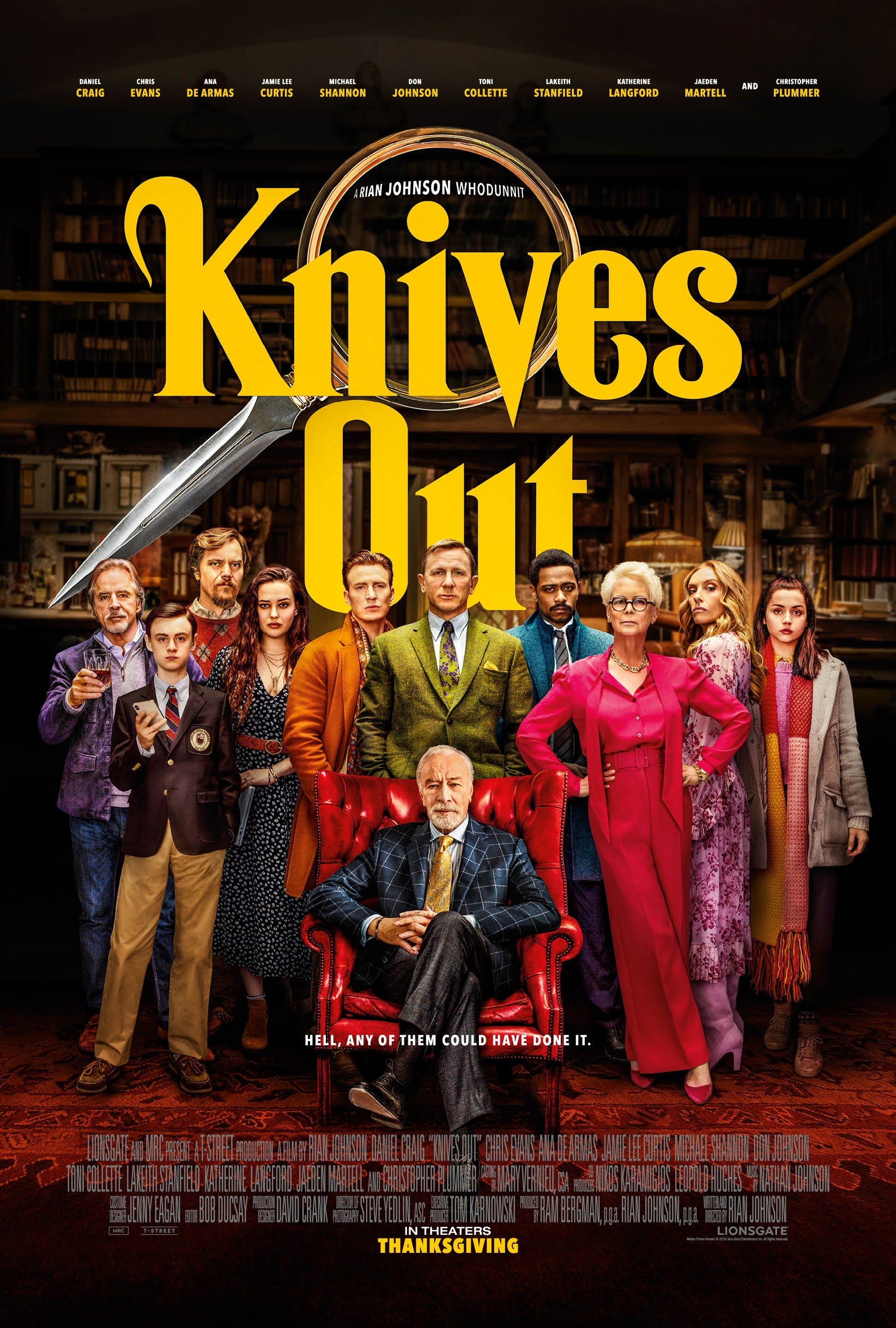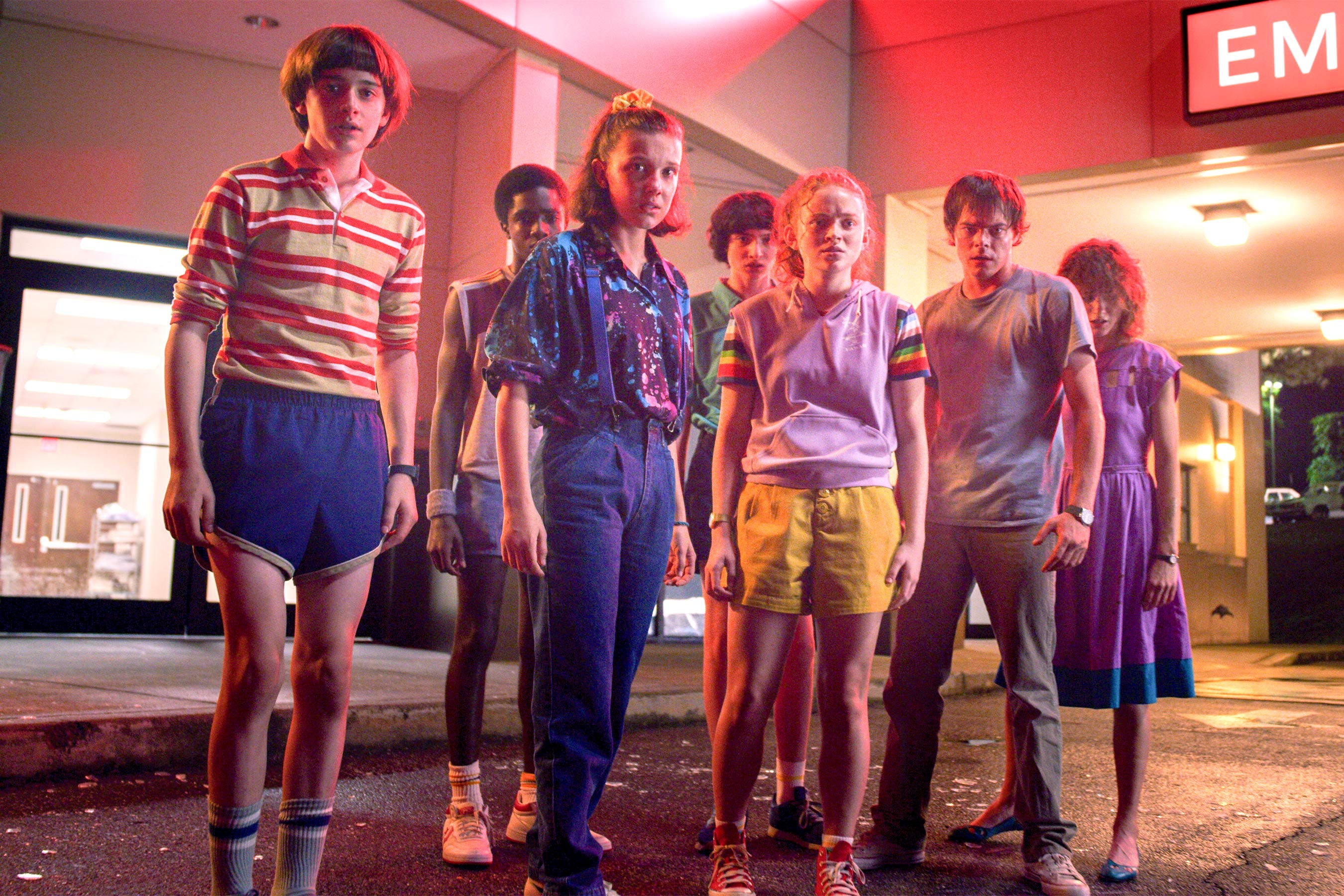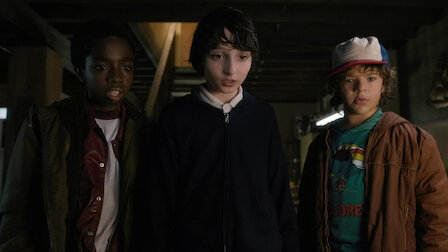Stranger Things (Season 3) - Review: Bigger, Bolder, Bumbling, but Ultimately, Better
Release date (US): July 4th, 2019
Starring: Winona Ryder, David Harbour, Finn Wolfhard, Millie Bobby Brown, Gaten Matarazzo, Caleb McLaughlin, Noah Schnapp, Sadie Sink, Dacre Montgomery, Natalia Dyer, Charlie Heaton, Joe Keery, Maya Hawke, Cara Buono, Priah Ferguson, Cary Elwes
Starring: Winona Ryder, David Harbour, Finn Wolfhard, Millie Bobby Brown, Gaten Matarazzo, Caleb McLaughlin, Noah Schnapp, Sadie Sink, Dacre Montgomery, Natalia Dyer, Charlie Heaton, Joe Keery, Maya Hawke, Cara Buono, Priah Ferguson, Cary Elwes
**DISCLAIMER**: This is a subjective, opinionated article that does not have, nor should have any effect on your opinion. As such, my opinion is entitled to change over time and whatever is written here at this point in time may not and should not be held to me in the future. You are not meant to agree with me 100 percent of the time, because the nature of subjectivity is we see everything differently. If there is something you happen to disagree with, I absolutely respect your point of view if you will respect mine. Please keep this in mind.
The Review
Season 2 of Stranger Things was a misstep. The general consensus seemed to be that the second season took a rather noticeable step back in terms of story from the ingenious, brilliantly set-up Season 1. With botched character arcs and setups (Eight), the Duffer brothers took time to reevaluate. They could've rushed a third season into production and launched it within the same "year" gap between seasons 1 and 2.
Instead they waited just that much longer to think through season 3 and develop it longer, as they are now during the pandemic.
The result? Stranger Things back on track and in an even higher gear than ever before.
The third season finds our now teenage-kids struggling with their relationships with each other. Nothing supernatural at all, at least not for the majority of the first episode. These characters are just trying to be normal. They're trying to adjust to life, some more successfully than others. For example, Mike starts out the season in a blossoming relationship with El, while Will struggles to see his friends moving from their childhood. Hopper is trying to move past everything that's taken place while Joyce Byers is unable to shake the feeling that something is still amiss in Hawkins, especially after the death of Bob Newby.
This is what makes Stranger Things the sensation that it is. Not the horror, not the visual effects, not the brilliant storytelling (although it is brilliant): it's the character. These are the same kids we met in season one, but they're growing and they're evolving. They're never the same. They learn from their mistakes and make new ones. Let's be honest, who thought Steve Harrington would be hanging out with Dustin Henderson and Lucas's sister? But it works so brilliantly because these characters are not the same as they were two seasons ago.
Lest we forget, however, that this is the third season of a worldwide phenomenon. And with that in mind, the budget gets raised and the visual effects teams are allowed to go bigger and bolder. And they absolute use that to their utmost advantage, bringing in creatures in a much closer light than ever before. The monsters don't necessary hide in the shadows this season, and that's a good thing. It raises the stakes even further.
One huge change that the Duffers have made with this season is introducing some outside threats. As season 4 suggested with its teaser, the show will be moving away from Hawkins, Indiana, but that begins largely in season 3 as the Russians are introduced at a time in US history when their presences would not have been seen kindly. Their arc and placement in the story is not necessarily the strongest; there are moments where you wonder why the Russian's experiments AND the villain's plot are unleashed at the exact same time, when in reality, there was no reason for them to. But it ties up very nicely at the end (a little too conveniently admittedly) that it doesn't really matter.
The brilliance of the interweaving arcs that has carried through all three seasons is ever present. But this time, the groups are a little more condensed with some wonderful new additions. Maya Hawke's Robin is a great new character to add that will only help give Steve more dimensions in the future while being a really interesting character in her own right. Priah Ferguson, while a little over the top, has an extended role this season as Erica Sinclair, and towards the end, she really gets to shine. For most of the season, the rest of the kids are together which is a breath of fresh air. By around episode 4, the group has banded together and we really get to see the dynamics between characters like Will and Max that we haven't seen before.
And yet, while these arcs were very much welcome and enjoyable to watch, the respective arcs of Joyce and Hopper were rather lackluster. With Hopper in particular, the show seems to think of him more and more as a joke as the episodes progressed, but still attempt (albeit successfully) to wrench emotion out of him at the very end. For the majority of the season, he's either intoxicated, making a fool out of himself, or both. It isn't until the last few episodes when he really hits his stride and becomes the Hopper that I personally fell in love with in season one.
That being said, most of my complaints come from the first three episodes of the season, which, yes granted is a lot of real estate given the eight episode length. However, the three episodes, while not all too interesting in themselves, lay some very, very important groundwork so that when we get to the episode entitled "The Sauna Test", everything springs into action and goes full throttle. "The Sauna Test" is one of the BEST episodes of television I have ever seen - it is tense, action-packed, emotional, and interweaves the multiple storylines PERFECTLY. And it only kicks into higher gears from there as we see an incredible hospital sequences with Nancy and Jonathan.
The villains this time around are slightly different than we've seen before. We get to explore more of Billy, who was a character that essentially could've been cut out of season two entirely. His set up was extremely weak and could've all been established in season three, but regardless, he's given a really interesting arc from start to finish. As for the Russians and any other alien threats, they're fine and they service the story. But it's hard to relate to any of them or understand why they're doing the things they're doing other than "they're Russian".
But as everything begins to unfold and the climax reaches its apex, you realize why everything in this season was planted. There were more than one occasion where I thought to myself, "That's convenient," but you get over those very quickly because of the payoffs. The third season also ends on the most emotional, brutally heartfelt note of any of the three seasons, even beating out the gut-wrenching climax of season one as Hopper revives Will intercut with his daughter's death.
Season three almost feels more like a continuation of season one. With fresh new characters, bright ideas, unbelievable character growth, season 3 brings our heroes further in their arcs than they've ever gone before. With a few more missteps and plot conveniences than one would've wanted, season 3 manages to recapture the magic of season while successfully going bigger and bolder.
Instead they waited just that much longer to think through season 3 and develop it longer, as they are now during the pandemic.
The result? Stranger Things back on track and in an even higher gear than ever before.
The third season finds our now teenage-kids struggling with their relationships with each other. Nothing supernatural at all, at least not for the majority of the first episode. These characters are just trying to be normal. They're trying to adjust to life, some more successfully than others. For example, Mike starts out the season in a blossoming relationship with El, while Will struggles to see his friends moving from their childhood. Hopper is trying to move past everything that's taken place while Joyce Byers is unable to shake the feeling that something is still amiss in Hawkins, especially after the death of Bob Newby.
This is what makes Stranger Things the sensation that it is. Not the horror, not the visual effects, not the brilliant storytelling (although it is brilliant): it's the character. These are the same kids we met in season one, but they're growing and they're evolving. They're never the same. They learn from their mistakes and make new ones. Let's be honest, who thought Steve Harrington would be hanging out with Dustin Henderson and Lucas's sister? But it works so brilliantly because these characters are not the same as they were two seasons ago.
Lest we forget, however, that this is the third season of a worldwide phenomenon. And with that in mind, the budget gets raised and the visual effects teams are allowed to go bigger and bolder. And they absolute use that to their utmost advantage, bringing in creatures in a much closer light than ever before. The monsters don't necessary hide in the shadows this season, and that's a good thing. It raises the stakes even further.
One huge change that the Duffers have made with this season is introducing some outside threats. As season 4 suggested with its teaser, the show will be moving away from Hawkins, Indiana, but that begins largely in season 3 as the Russians are introduced at a time in US history when their presences would not have been seen kindly. Their arc and placement in the story is not necessarily the strongest; there are moments where you wonder why the Russian's experiments AND the villain's plot are unleashed at the exact same time, when in reality, there was no reason for them to. But it ties up very nicely at the end (a little too conveniently admittedly) that it doesn't really matter.
The brilliance of the interweaving arcs that has carried through all three seasons is ever present. But this time, the groups are a little more condensed with some wonderful new additions. Maya Hawke's Robin is a great new character to add that will only help give Steve more dimensions in the future while being a really interesting character in her own right. Priah Ferguson, while a little over the top, has an extended role this season as Erica Sinclair, and towards the end, she really gets to shine. For most of the season, the rest of the kids are together which is a breath of fresh air. By around episode 4, the group has banded together and we really get to see the dynamics between characters like Will and Max that we haven't seen before.
And yet, while these arcs were very much welcome and enjoyable to watch, the respective arcs of Joyce and Hopper were rather lackluster. With Hopper in particular, the show seems to think of him more and more as a joke as the episodes progressed, but still attempt (albeit successfully) to wrench emotion out of him at the very end. For the majority of the season, he's either intoxicated, making a fool out of himself, or both. It isn't until the last few episodes when he really hits his stride and becomes the Hopper that I personally fell in love with in season one.
That being said, most of my complaints come from the first three episodes of the season, which, yes granted is a lot of real estate given the eight episode length. However, the three episodes, while not all too interesting in themselves, lay some very, very important groundwork so that when we get to the episode entitled "The Sauna Test", everything springs into action and goes full throttle. "The Sauna Test" is one of the BEST episodes of television I have ever seen - it is tense, action-packed, emotional, and interweaves the multiple storylines PERFECTLY. And it only kicks into higher gears from there as we see an incredible hospital sequences with Nancy and Jonathan.
The villains this time around are slightly different than we've seen before. We get to explore more of Billy, who was a character that essentially could've been cut out of season two entirely. His set up was extremely weak and could've all been established in season three, but regardless, he's given a really interesting arc from start to finish. As for the Russians and any other alien threats, they're fine and they service the story. But it's hard to relate to any of them or understand why they're doing the things they're doing other than "they're Russian".
But as everything begins to unfold and the climax reaches its apex, you realize why everything in this season was planted. There were more than one occasion where I thought to myself, "That's convenient," but you get over those very quickly because of the payoffs. The third season also ends on the most emotional, brutally heartfelt note of any of the three seasons, even beating out the gut-wrenching climax of season one as Hopper revives Will intercut with his daughter's death.
Season three almost feels more like a continuation of season one. With fresh new characters, bright ideas, unbelievable character growth, season 3 brings our heroes further in their arcs than they've ever gone before. With a few more missteps and plot conveniences than one would've wanted, season 3 manages to recapture the magic of season while successfully going bigger and bolder.









